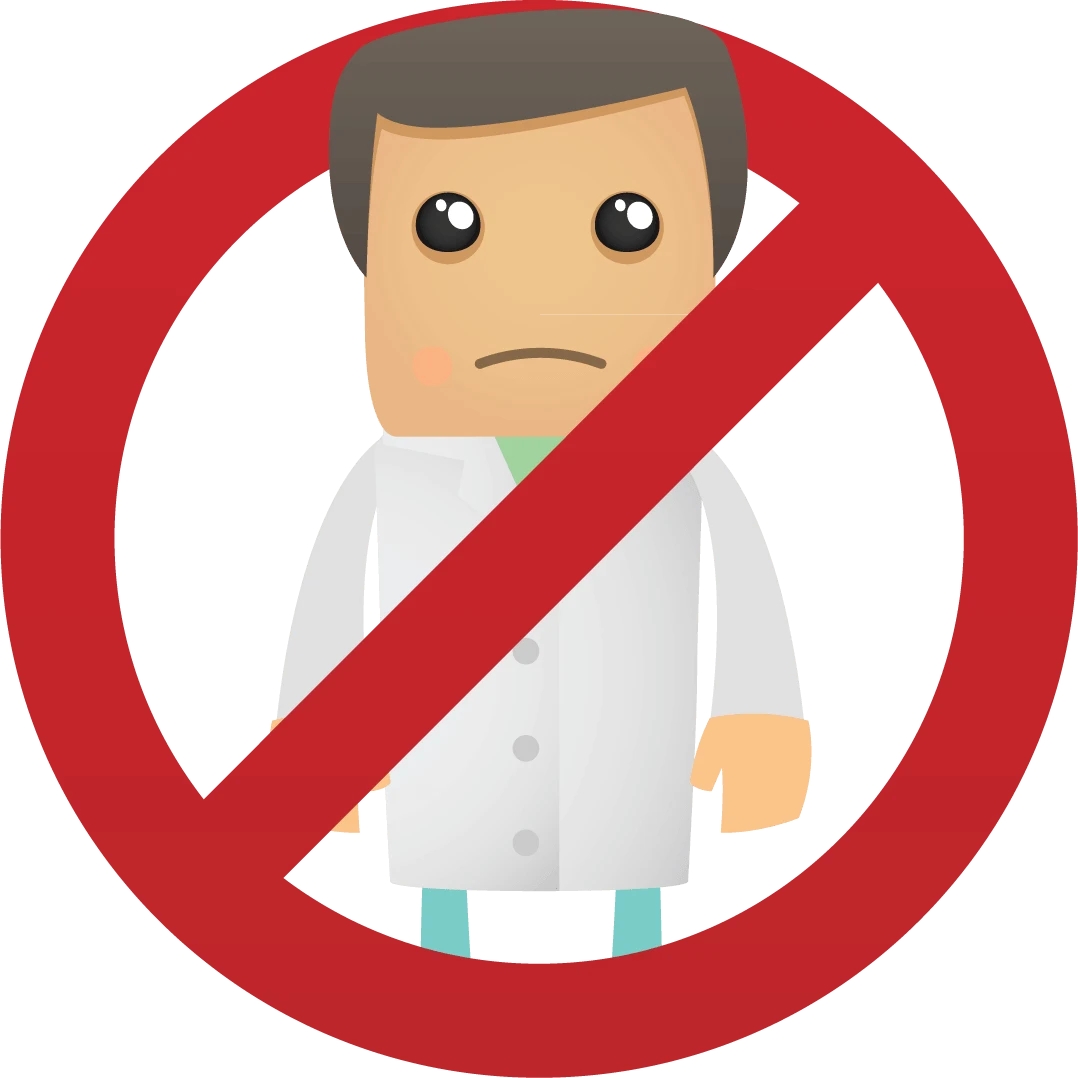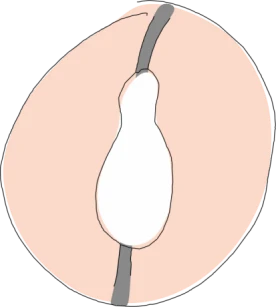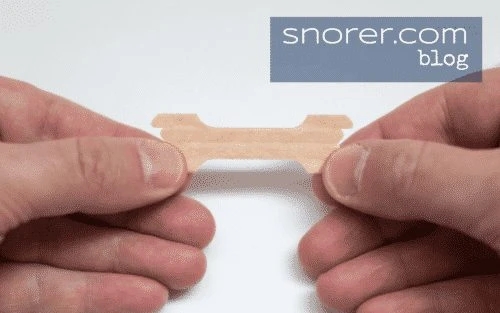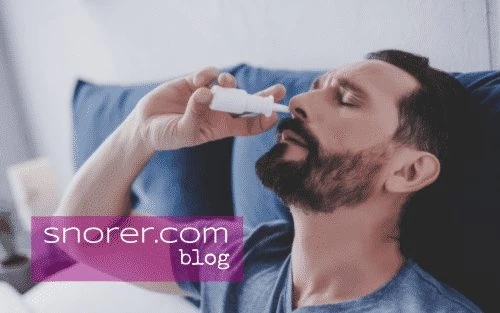

Best Snore-Relief without prescription? (2023 Update)
Estimated reading time: 8 minutes
Desperate for snore-relief?
If you find yourself walking (or being dragged…) around the pharmacy, you may see a range of snore-relief products available without prescription.
Should you decide to ignore the extensive disclaimers (seriously, what is that telling you?!) you might reasonably wonder:
“Do they work?“
As a snorer and someone with a passion for the truth, I thought it was time to find out!
In this review:
Nasal snore relief products:
- Strips (external nasal dilators)
- Sprays (snore relief claims)
- Clipple review (Magnetic nose clip)
Throat targeted snore relief products:
Note: Over-the-Counter (non-prescription) products are sometimes known as ‘OTC’ products.
- Looking for self-help options?
- What about anti-snoring devices?
- Chin straps for snoring: are they safe and effective or dangerous?
Here’s my top 7 self-help ways to stop snoring:

The problem with ALL snore-relief products (available without prescription)
Ignoring the merits or otherwise of the products
The main problem with snore relief products available without prescription is that you’re GUESSING why you snore.

For your own health, it’s imperative that you’re assessed and screened for sleep apnoea before buying and ‘treating’ yourself with anything.
Your hasty purchase could:
- Waste your money
- Cause you pain (‘gumshields’ are the chief villain here)
- Delay effective treatment (free on the NHS!) that will prolong your healthy life
Consult either a sleep-trained pharmacist or your GP if you snore, and if you live in the UK, sleep-trained dentists can also help.
What others say:

If you are looking for impartial advice about snoring from an expert in the field, the highly respected Adrian Zacher should be your go to.
We applaud Adrian’s work, to raise awareness about the health implications of snoring, and the importance of prescription, custom-made devices for long-term success.
Non-prescription Snore Relief review:
This independent review looks at non-prescription snore relief products typically found online and is structured by self-targeted area (as in nose or throat) and then as below:
Empirically: Do they work? (Assessed by my wife’s ears!)
What clinical evidence is there?
My final verdict
I conclude with what else you can do about snoring. That’s a relief!
Good to know:
Snorer.com is independent. We don’t sell anti-snoring devices, chin straps or whatever! And we don’t benefit from affiliate deals or have adverts for pseudo-scientific ‘snore cures’.
Nasal Polyp

The simplified image above shows a nasal polyp. It’s in this review of over-the-counter products to illustrate why you should have a professional assessment.
No amount of nasal spray is going to help here!
This tissue ‘lump’ reduces airflow in your nose. An ENT surgeon can quickly remove this (which in itself may not stop you snoring) but it will improve your ability to breathe through your nose (learn more about surgery for snoring).
You may then no longer need to open your mouth to sleep and breathe at the same time (see simple theory of nasal breathing).
Simple theory of nasal breathing
Lots of snore-relief products target your nose. And this is because breathing through your nose, instead of your mouth is a good thing.
After all, that is what your nose is designed for.
Air you breathe in through your nose is moistened and dust is removed before it gets to your lungs.
If however you simply can’t breathe through your nose, you must breathe through your mouth, and as you open your mouth the airway in your throat (behind your tongue) gets narrower, which may make you snore.
If you routinely cannot breathe through your nose, consult your GP. Some issues may be simply and quickly resolved with antihistamine tablets or sprays.
Other issues, including sinusitis would be identified by your GP.
More on the NHS website. ↗
What the experts say about OTC snore -relief :
Neil Douglas, Emeritus Professor of respiratory and sleep medicine at the Scottish National Sleep Centre, told BBC News Online8:
“People have to be very careful before spending money on devices advertised when there’s no objective evidence that they work.
“I know of some people who have wasted hundreds of pounds on such devices, with no benefit.“
He advised snorers to consider if they are overweight or use alcohol.
“If those two don’t work, don’t waste your money.“

Target area: Your nose
Should you self-diagnose yourself (mistake) and decide to self-treat your snoring (another mistake) you might think snore relief strips (known as “External Nasal Dilators“) are worth a punt.
Read this independent review before parting with your hard-earned.
Clipple Review: Magnetic nose ring
Lately, I’ve seen an increase in search activity for a ‘Clipple review’.
The Clipple nose clip thingy, so the manufacturers and distributors claim, is a magnetic nose ring, ‘snore-stopper’, reputedly from Tibet (to add the air of mystery I must conclude…).
The Clipple nose clip is said to incorporate magnets. Quite how these magnets stop your snoring is unclear (adding further mystery of course).
My advice would be to look for clinical evidence of effect.
If they had such clinical evidence then surely, they would proclaim it…
Snore-relief strips (worn across your nose)
There are several different manufacturers of snore-relief strips to stick across your nose. You will look a bit like Adam Ant (Uh oh, I am showing my age!)
You might have seen them worn by rugby players or perhaps racing drivers?
They are technically known as: ‘external nasal dilators’.
How do snore-relief strips (external nasal dilators) work?
The aim is to widen the airway in your nose and make it easier to breathe in.
Here’s a link to one manufacturer’s explanation (I do not endorse it):
https://www.breatheright.com/how-to-breathe-better/how-breathe-right-nasal-strips-work.html ↗
Review of their claims
External nasal dilators commonly claim to :
Lift & open nasal passages to provide instant relief
Open your nose to improve airflow and help you get a more restful night’s sleep
If you have nasal congestion due to colds & allergies then consult your GP. While it is possible that this mechanical approach to nasal air flow restriction may help temporarily, your GP may be able to resolve the issue of nasal congestion entirely.
Empirical research: Do external nasal dilators stop snoring?
That said, I do not experience night time nasal congestion and while my nasal airway is perhaps not what it could be, my snoring comes from my throat.
What does the clinical evidence say?
There isn’t room here to look at all the clinical studies examining nasal dilators. And we don’t have to as it has been done for us!
Here are the pertinent extracts from a study titled “Nasal Dilators (Breathe Right Strips and NoZovent) for Snoring and OSA: A Systematic Review and Meta-Analysis” (2016), in the journal Pulmonary Medicine. Accessed 14th June 2019. Available here: https://www.ncbi.nlm.nih.gov/pmc/articles/PMC5187471/ ↗
(A ‘systematic review and meta-analysis’ means it’s a study that reviews other studies. The idea being that the sample size is larger and therefore the conclusions may be more reliable.)
The simple act of changing from the upright to the supine position has been shown to reduce upper airway volume by approximately 33% in OSA patients [10]. Given that the nasal cavity is upstream from the collapsible soft tissues of the upper airway, the nasal cavity directly influences the downstream airflow. Moreover, when the nasal cavity’s cross-sectional area increases by 10%, there is a corresponding 21% increase in nasal airflow [11].
Which means:
“Snoring demonstrated improvement when the overall raw data was combined, but there was only a small improvement when random effects modeling was applied. A subanalysis comparing external versus internal nasal dilators demonstrated that the external nasal dilators improved the snoring index minimally (−3.08), but the internal nasal dilators improved snoring more significantly (−86.54).”
Or to put it another way some small improvement in snoring was found for external nasal dilators, while internal nasal dilators worked a little better.
“Conclusion. Although nasal dilators have demonstrated improved nasal breathing, they have not shown improvement in obstructive sleep apnea outcomes, with the exception of mild improvement in apnea index when internal nasal dilators were used.”
Which means that if you have obstructive sleep apnoea (OSA) and are using an automatically adjusting positive airway pressure (PAP) therapy device, an internal nasal dilator might improve your nasal airway such that your pressure reduces slightly and your ability to tolerate PAP may improve.
Worth a bash?!
If you experience night time congestion or suffer from allergies that impact upon your ability to breathe freely at night, then consult your GP and seek a referral to ENT for a professional assessment.
Whether a nasal dilator stops your snoring depends upon what makes you snore.
If your snoring comes from your throat then, well it won’t do very much! And only a sleep-trained healthcare professional can tell you where your snoring comes from. Do not be fooled by online sales channels attempts to encourage you to self-diagnose (and sell you a gadget).
A final note: in time we may see internal nasal dilators launched as over-the-counter products. Early research looks promising – if your snoring emanates from your nose…
Snore-relief spray (squirted up your nose)
Now let’s have a look at snoring remedy sprays you use up your nose (not to be confused with prescription steroid or anti-histamine sprays).

No objective evidence of the efficacy of over-the-counter nasal sprays for snoring has been found.
Of course, that’s not to say there is none, I’ve just not found any!
Happy to be corrected!
I think you’re wasting your money.
Consult a a sleep-trained pharmacist to stop snoring. Do yourself and your partner a favour.
Snore relief targeting: Your throat
Snore-relief strip (for your throat)
This type of snore-relief strip differs from the ‘plaster across your nose type’ by where you ‘stick’ it.
This time it’s to the roof of your mouth.
They typically claim to ‘lubricate’ or ‘soothe’ your throat, and act directly upon the ‘source of the problem’ (which they conveniently omit to define).
Indeed, they’re very careful to avoid making specific claims. Conclude from that what you will!
What do they contain?
They don’t appear to contain any active ingredients and typically are sugar-free so at least they won’t rot your teeth… The inclusion of mint might make them taste nice.
But do they actually stop your snoring?
To answer that you either want to see:
- Clinical evidence of effect. Some proof.
- Or at a minimum some positive user reviews
Read the user reviews is about the best suggestion I can make.
Here’s what I found in Amazon UK’s category for ‘Insomnia and snore relief’: (other online vendors are available) Amazon ↗
Don’t get your hopes up.
It is possible that if the throat strips contain astringent herbs they could act like the throat sprays that reduce tissue swelling (for which I have found a manufacturer sponsored study3 reporting a significant reduction in snoring).
In April 2019, my colleague Emma emailed a manufacturer of one well-known brand, requesting information about their clinical evidence. To date we’ve yet to receive a reply (it didn’t bounce).
Perhaps they’d like to comment below and let us know about their research? I’d certainly update this post accordingly.
There is some evidence they may tighten the tissue in your throat and this may reduce snoring.
The problem is (as I have said before) this is ‘treatment’ before knowing what you are trying to ‘treat’. Snoring may be a symptom of obstructive sleep apnoea.
I’ve said it before but I will say it again:
Consult a sleep-trained pharmacist and get signposted to the most appropriate professional to help you.
While its unlikely these strips will hurt you and they may if you’re very lucky work to some extent, they are delaying you from obtaining actual, evidence-based help.
Snore-relief spray (for your throat)
According to the Daily Mail a well known Over-the-Counter (OTC) snore-relief spray:
“…creates a thin foam that settles on the back of the throat to reduce the vibrations caused when air passes over soft tissue…
The Daily Mail also quote Dr Neil Stanley (an independent sleep expert) as saying:
‘There is some evidence that sprays like this can reduce snoring in some people, as they stop the muscles relaxing so much. But if you have pauses in your breathing during sleep [ie, sleep apnoea], see your GP.’
Loss of tissue tone contributes to snoring. Increasing tone is therefore a good thing.
If the product works for you then that’s great news.
Personally, I remain skeptical.
Well they taste nice.
My Mother always said:
“If you don’t have anything nice to say – then don’t say anything at all“!
This is interesting:
A manufacturer sponsored study4 found the essential oils in the throat spray may improve tissue tone and reduce snoring.
However, to balance the argument I have also found independent studies5, 6 disputing any subjective or objective reduction in snoring.
The fact is – this is ‘treatment’ before even a basic assessment has occurred.
Which is backwards and wrong.
You need to work out why you snore before you jump to a treatment.
“You pays your money and takes your choice!“
Personally, I would urge you to save your money and get signposted to the most appropriate professional.
Work out why you snore and then get directed to the most appropriate evidence-based treatment to actually stop.
Summary
While there may be a placebo effect if you want the snore-relief product to work.
The evidence for non-prescription snore-remedies is, at best, inconclusive.
Regardless, their vendors make money by exploiting your desire for a quick-and-easy ‘fix’, which is in my view a myth.
The merit or otherwise of the various ‘fixes’ is one thing, but:
How you come to get the product is the real issue
Get advice on why YOU snore and what will work for you. Until then, you’re just wasting your time and money.
Your first step is self-help and then consult a sleep-trained pharmacist.
Let me know if you found this useful by typing a quick FB comment below.
I read every one.
Glossary
Anti-Snoring Device – generally considered a device/appliance worn in your mouth to stop you snoring by holding your jaw forward while you sleep.
Custom-made – a bespoke device made specifically for you by a registered dental technician, working to prescription, using CE marked materials. In Europe working to the Medical Devices Directive administered in the UK by the Medicines and Healthcare Products Regulatory Authority (MHRA).
OSA Obstructive Sleep Apnoea – (also spelt apnea) When an individual is unable to sleep and breathe at the same time. Visually, a repetitive pattern of breathing interruptions (apnoeas) occurring while the individual sleeps, due to a physical obstruction in the airway.
OTC – Over-the-Counter product sold over the pharmacy counter or on-line without prescription, medical or dental assessment and without a review of medical/dental history.
Signposting – Is the medical term for directing people to the most appropriate professional to help them based upon their answers to some high-level questions.
Sleep-trained Dentist – A dentist who has undertaken special interest training in sleep. As such they are able to obtain professional indemnity insurance.
Sleep-trained Pharmacist – A pharmacist who has undertaken special interest training in sleep-related breathing disorders (snoring and obstructive sleep apnoea).
References
- Nasal Dilators (Breathe Right Strips and NoZovent) for Snoring and OSA: A Systematic Review and Meta-Analysis (2016), Journal Pulmonary Medicine. [Accessed 14th June 2019. Available here: https://www.ncbi.nlm.nih.gov/pmc/articles/PMC5187471/ ↗
- Breatheright strips explanation. [Available here: https://www.breatheright.com/how-to-breathe-better/how-breathe-right-nasal-strips-work.html ↗ Accessed 9th July 2019.]
- Snoring and the evidence behind the various treatments available. Nathan, A.The Pharmaceutical Journal (Vol 274) 2005 pg 309-312 [available here: https://www.pharmaceutical-journal.com/download?ac=1064920&firstPass=false ↗ accessed 8th July 2019]
- The Use of Essential Oils to Treat Snoring, Pritchard, A. PHYTOTHERAPY RESEARCH Phytother. Res. 18, 696–699 (2004) [Available here: http://dcscience.net/prichard-snoring.pdf ↗ accessed 8th July 2019]
- Study of lubricant-induced changes in chronic snorers, Wijewickrama RC1, Blalock D, Mims JW. Otolaryngol Head Neck Surg. 2004 Nov;131(5):606-9. [Available here: https://www.ncbi.nlm.nih.gov/pubmed/15523434 ↗ accessed 8th July 2019]
- Popular snore aids: do they work? Michaelson PG1, Mair EA. Otolaryngol Head Neck Surg. 2004 Jun;130(6):649-58. [Available here: https://www.ncbi.nlm.nih.gov/pubmed/15195048 ↗ accessed 8th July 2019]
- Effect of nasal spray, positional therapy, and the combination thereof in the asymptomatic snorer.
Braver HM1, Block AJ. Sleep. 1994 Sep;17(6):516-21. [Available here: https://www.ncbi.nlm.nih.gov/pubmed/7528939 ↗ Accessed 8th July 2019] - BBC “Snoring cures exaggerated” 11th Dec 2001. Accessed 10th Jan 2020. [Available here: http://news.bbc.co.uk/1/hi/health/1701735.stm] ↗


 ORCiD
ORCiD









Are you familiar with the Snorefit device or other devices that stimulate the Vegus nerve. These devices sound like a possible way to treat snoring. However I have not found any independent studies.
Hi Janet. Thanks for commenting. No, I was not familiar with this particular product. So, I Googled it and I would make two observations:
1) As you say, where is the clinical research evidence? Maybe it exists but I would have thought they would proclaim it?
2) As an Over-the-Counter product it is trivialising snoring (it also mentions sleep apnoea), as no assessment or diagnosis has been performed prior to self ‘treatment’.
While it may work, I (like you) think it wise to view it with scepticism. My advice would be to consult a sleep-trained professional, work out what you’re dealing with (get screened for obstructive sleep apnoea) and THEN be guided to a prescription and validated solution.
Best of luck.
Adrian